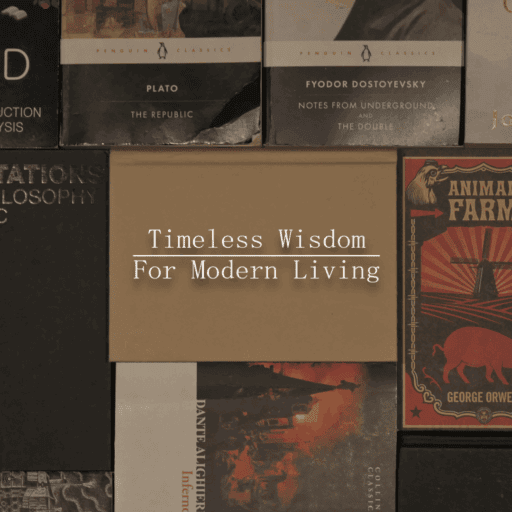
What constitutes a soul?
Inspired by the teachings of Socrates, Plato believed that a persons essence and behaviour was dictated by the psyche.
Arete is another key principle in Greek Philosophy. It means “excellence”, and it’s crucial to know if you want to improve yourself. Read more about it here: What is Arete? – Greek Philosophy
Plato’s Soul Theory
The Greek word psukhē means ‘breath, life or soul.’
The modern-day word psyche means ‘the human soul, mind, or spirit.’
Plato believed that the soul was immortal and incorporeal. In other words, it exists forever and is not made of matter. After death, the soul still maintains the ability to think. When a body dies, the soul is reborn in another body. This repeats for eternity.
Plato divided the soul into three parts: logistikon, epithymetikon and thymoeides.
These are reason, appetite and spirit.
The Nature of the Soul according to The Republic
We all have a soul.
Every person has a soul containing the three elements, each developed to differing degrees in different types of character. This, according to Plato, explains why some people behave differently than others.
When Plato talks about the soul, he is not talking from a scientific or psychological standpoint. The soul is a metaphor for discussing morals and philosophy. He is not using exact scientific precision, but rather just trying to having a normal, philosophical conversation. They are representative of what motivates us to behave like we do.
Plato says that the soul is a ‘self-mover’. The soul is what gives movement, character and life to the body. The soul is also the mind; the faculty of consciousness and thought. The individual consists of the soul, and the body the soul resides in. The soul is separate from flesh; this is Platonic Dualism.
What did Plato think about old age, the Ring of Gyges, and the principle of specialization? Click here to read more: Plato on Old Age, The Ring of Gyges and Specialization – The Republic
Can a Single Mistake Define a Man?
“It is not fair to say that an archers hands are pulling and pushing the bow at the same time”. – Plato
The quote above refers to Plato’s principle of non-contradiction (known today as the law of contradiction), meaning that a thing cannot both be and not be.
A problem is presented when Plato uses his principle to compare the just and unjust souls in their actions.
Plato says that a just man cannot be unjust because he is a just man. But he does not consider the possibility of a just man still being capable of committing an unjust act.
Just because a person is nice, does not mean that they will not say something mean from time to time. Just because a man is quiet, does not mean that he’ll never raise his voice, simply because he is deemed ‘quiet’.
Can one bad action or choice make a just man an unjust man?
A man is handed a moral or immoral title of character in relation not to who he is, but how he acts in accordance to others the majority of the time; majority is the key word here.
We are not immune from making mistakes or acting out of character. Just because a thing is good, does not mean it will only ever do or cause good.
Plato valued education greatly. Here’s what he had to say on it: Plato Quotes on Education
Logistikon – Reason
Logos refers to reason. It is located in the head.
Although it is the smallest part of the soul, it “rightfully” controls the other two less rational elements. Spirit and appetite are subordinates to reason, which is rational (uses reasoning and logic in thought and understanding).
This part of the soul always seeks the truth.
The reason element is analogous to the philosopher ruler class in The Republic; the smallest population has ‘rightful’ control of the guardians/auxiliaries and the producers.
Epithymetikon – Appetite
Eros refers to ones bodily desires.
It is located in the stomach and is irrational.
These primal or bodily desires could be present in the form of fullness, thirst, sex and pleasure.
It is warned by Plato that the appetite element is ‘naturally insatiable”; this is why it must be controlled by complete rationality in reason.
Thymoeides – Spirit
Thymos refers to spirit.
It is located in the breast.
According to Plato, the spirit is by which we are angry or get into a temper.
How to use Plato’s Soul Theory to Cultivate a Just Mind
Reason and Spirit are the best defense against external enemies.
Reason means clear thinking. This allows for wisdom to be cultivated.
When the spirit listens to orders of reason of what should and should not be feared, in spite of pleasure and pain, courage and bravery can develop.
To improve the reason element, you must engage in rational discourse with others. This soothes the spirit by introducing clarity, balance, harmony and rhythm.
The appetite element, controlled by reason and spirit, is “naturally insatiable”; if you let it have too much of its desired pleasures it will become too strong to control.
The reason and spirit elements will be overthrown and the soul will become chaotic.
An individual embodies temperance when the spirit and appetite elements are in subordination to the reason element respectively.
A man, analogous to the state in The Republic, is just when there is harmony between all three elements; each element fulfils its role without digressing or venturing off their rightful path; any acts that are just and honorable in nature help to maintain and improve the souls elements.
If you want a life of harmony, reason must rule.
The Four Cardinal Virtues go hand-in-hand with human excellence. Learn about what they are, and how to adopt them into your life here: What are the Four Cardinal Virtues? – Greek Philosophy
The Definition of an Unjust Soul
What is the definition of an unjust man according to The Republic?
The soul is the battleground for civil war; each element constantly trespassing onto each others path.
All functions of the soul become impaired when the principle of specialization is not followed.
Let each element do its appropriate part.
When one element rebels and takes full control it goes against its “natural role”, that “is to be a slave to the rightfully controlling element”. The philosopher rulers are the rightfully controlling element of the state, in charge of the guardian and producer classes.
When the elements are confused and displaced, they cause injustice, indiscipline, cowardice, ignorance, “wickedness of all kinds” within the individual and his behavior.
Healthy activities produce healthy, unhealthy produce sickness, just actions create a good man.
Check out more posts here: https://timelesswisdomformodernliving.com
Follow us on X for daily insights: https://x.com/twfml
Image Source: https://commons.wikimedia.org/wiki/File:Painting_of_Oeverpoort,_Museum_of_the_City_of_Brussels.jpg
